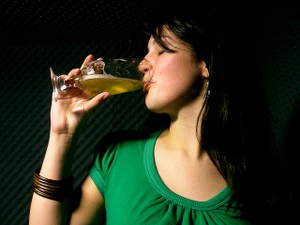While there are undoubtedly some health benefits to regular very moderate alcohol consumption, (heart health and red wine, for example) binge drinking is never good for you, and on a societal scale, our enormous binge drinking habit results in definite social consequences.
Binge drinking refers to consuming 5 or more drinks in a session (within a few hours). A drink refers to a regular sized glass of wine (5 ounces) a regular strength bottle of beer or a cocktail containing 1.5 ounces of 40% alcohol spirits.
Binge Drinking and Your Health
Binge drinking is bad for your health and well-being.
If you binge drink you are more likely to:
- Feel hung-over the morning after
- Get into a traffic accident, and more likely to suffer a wide array of traumas, such as drowning, burns, falls, broken bones and firearm injuries.1
- Be involved in a violent incident (either as the perpetrator or the victim) 2
- Engage in risky sexual activities
- Overdose on alcohol (can be fatal)
If you binge drink on a regular basis you are at an increased risk of:
- Developing an alcohol dependence (alcoholism)
- Liver disease, such as alcoholic hepatitis or cirrhosis
- Brain damage
- Heart disease, high blood pressure
- Kidney damage
- Depression and anxiety
- Decreased fertility in women
- Insomnia
- Hormonal alterations (a decrease in testosterone)
- Stomach problems, such as gastritis or ulcer
- An array of different cancers, such as mouth, throat and esophageal cancers
- Sexual problems, such erectile dysfunction3
For good health and a long life, if you choose to drink, drink only in moderation.
Binge Drinking – The Social Costs
Whether or not you choose to binge drink, everyone is affected by the alcohol choices made by those in their communities.
- About half of all Americans are regular consumers of alcohol and about 20% of Americans aged 12 and over engaged in at least once binge drinking session within the last month
- Young adults are the age group most likely to engage in binge drinking – among 21 year olds, 48.2% are binge drinkers.4
- Communities that have a higher density of liquor stores and other alcohol outlets have higher rates of violent assaults
- 40% of fatal traffic accidents involve alcohol
- The economic cost of heavy drinking is tabulated at $134 billion per year (factoring in costs such as lost productivity, early death and increased crime). In total, less than half of this economic burden is imposed on those individuals that actually drink alcohol – with government and private corporations paying more than half the total costs.5
- Each year, 590 000 college students are injured while under the influence of alcohol and 97 000 students are involved in an alcohol involved sexual assault or rape6
Tips for Drinking Less
By making a conscious choice to limit how much alcohol you’ll consume during a night out on the town you can avoid dealing with the negative consequences of overindulgence.
To drink less during an evening out, try:
- Deciding in advance on how much you’ll drink and stick to your limit
- Start out with a non alcoholic drink and try alternating between alcohol and non alcohol drinks as the night progresses
- Drink “lite’ beers or half measure cocktails
- Drink slowly, sipping your drink
- Don’t get pressured into rounds of drinks or shots7
- References
Page last updated Sep 02, 2010


